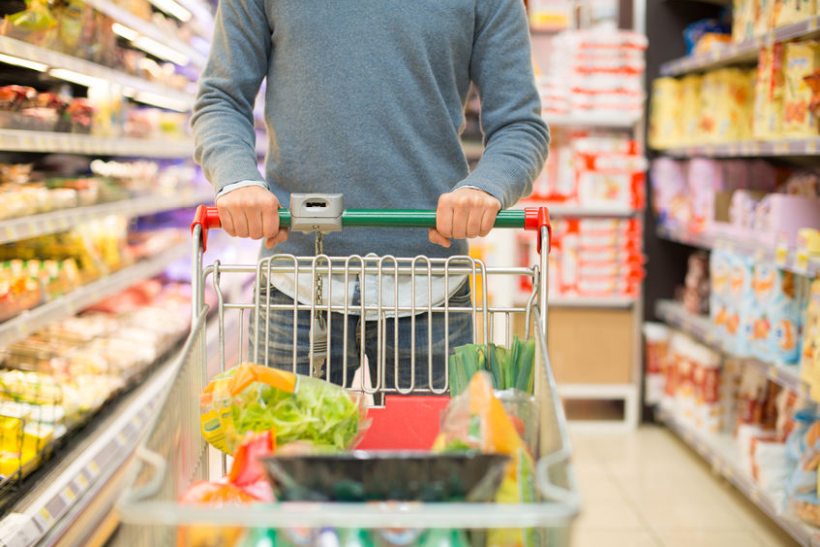
The UK could see a 'significant rise' in fresh food prices even if the government secures a deal with the EU, a new report warns.
Without practical action by the UK government and EU, the food sector and consumers on both sides will be badly impacted, the London School of Economics (LSE) says.
The university's report adds that higher trade tariffs and the establishment of new non-tariff barriers will have a major impact, with the price of food is expected to go up.
The Vulnerabilities of Supply Chains Post-Brexit report, produced by LSE Consulting’s Trade Policy Hub, outlines how interlinked the food sectors in the UK and EU are.
At present, a total of 40% of agricultural and food products consumed by households and businesses in the UK are imported from the EU.
In the dairy sector, 15 percent of all products sold are imported into the UK, and 99 percent of this currently comes from the EU.
A no-deal departure, with high tariffs, will hike up the prices of many of Britain’s best-loved products, the report, commissioned by dairy co-op Arla, explains.
Even with a deal, non-tariff barriers such as increased paperwork and customs checks will have a major impact, increasing prices and reducing product availability.
Yet research conducted by Arla earlier in the year shows that consumers expect to have the products they want on the shelves, and do not want or expect to pay any more.
This issue is not limited to products on supermarket shelves, but it also affects agricultural production, the report warns.
Over two-thirds (69%) of some aluminium products, 65 percent of certain pharmaceutical goods and 51 percent of many fertilisers are imported from the EU.
Costs from tariffs and non-tariff barriers on these goods will hit farmers and processors across the UK, it says.
And whilst the British food and drink sector is strong and has the potential to grow, it could take years and hundreds of millions of pounds of investment to build capacity to replace imports from the EU.
Ash Amirahmadi, UK Managing Director of Arla Foods, said the report showed how integrated the UK-EU food supply chain was, and the mutual benefits this brought to both sides.
"Because of this free trade with our largest trading partner UK customers have access to a large choice of high quality, affordable, products," he added.
"We want to ensure this continues after 31 December and we know consumers expect this to happen as well. But for this to happen it is essential we secure a tariff-free agreement.
"It is vital that the government takes pragmatic and sensible steps to limit the impact of non-tariff barriers.”
Dr Elitsa Garnizova, Lead of the Trade Policy Hub and one of the authors of the report, added that tariffs imposed on food were typically very high, so the impacts of a no-deal would inevitably have profound effects on customer choice.
"Even with risk management strategies in place, no-deal will have significant impact on the fresh foods sector and these need to be considered by policy-makers in the coming weeks.”
The report calls for the government to take a strategic approach, working with farmers and processors to address the challenges and harness the opportunities that arise post-Brexit.
